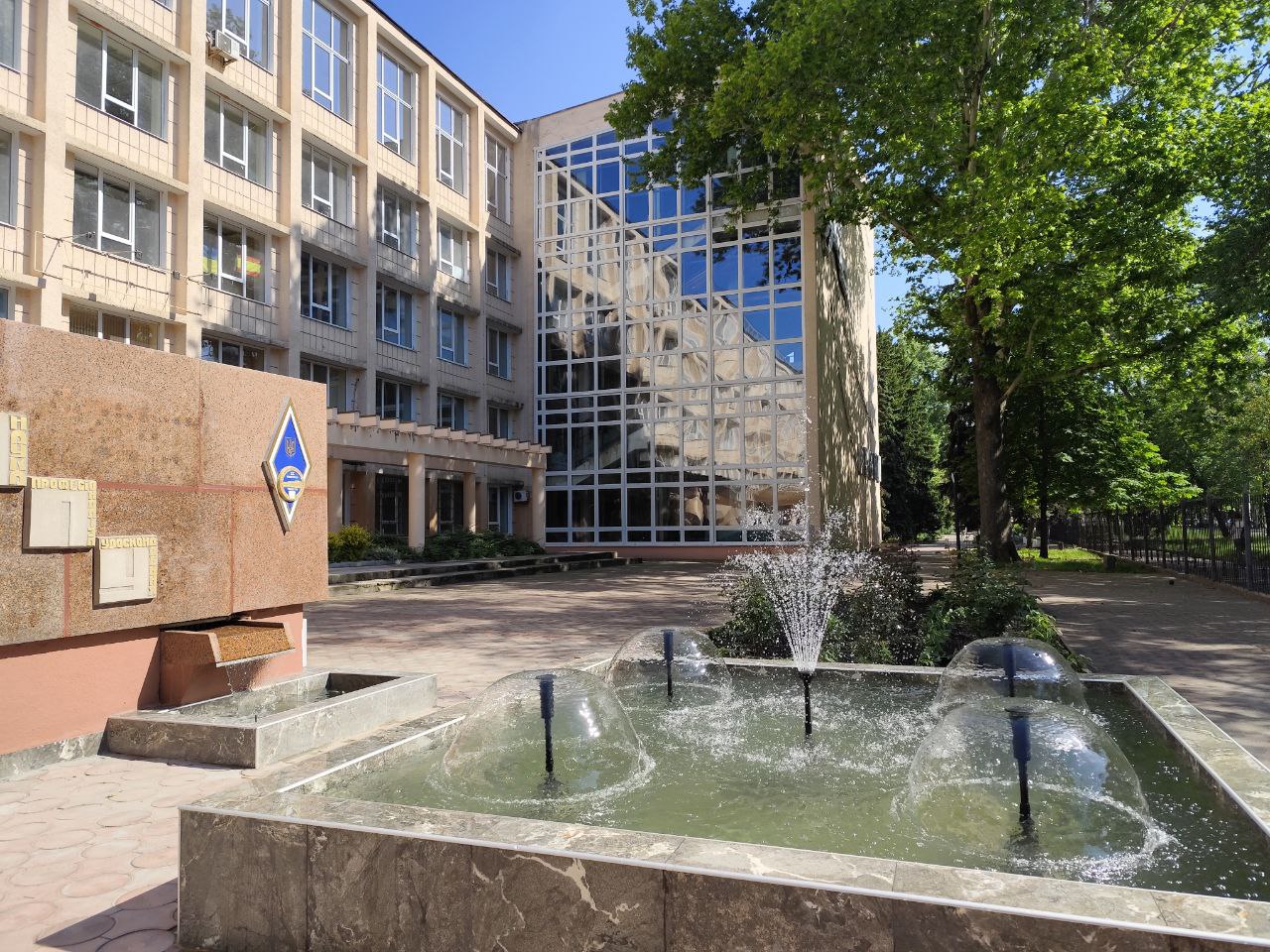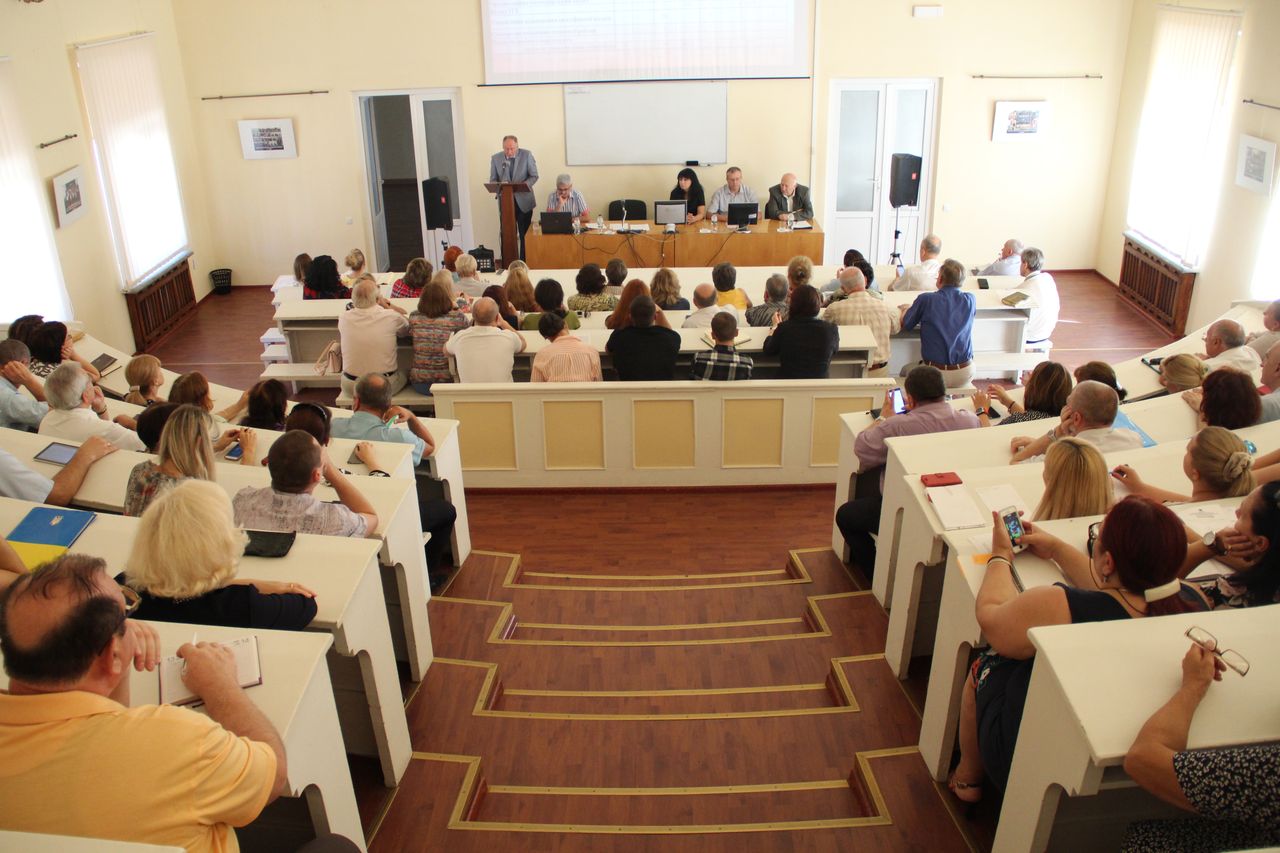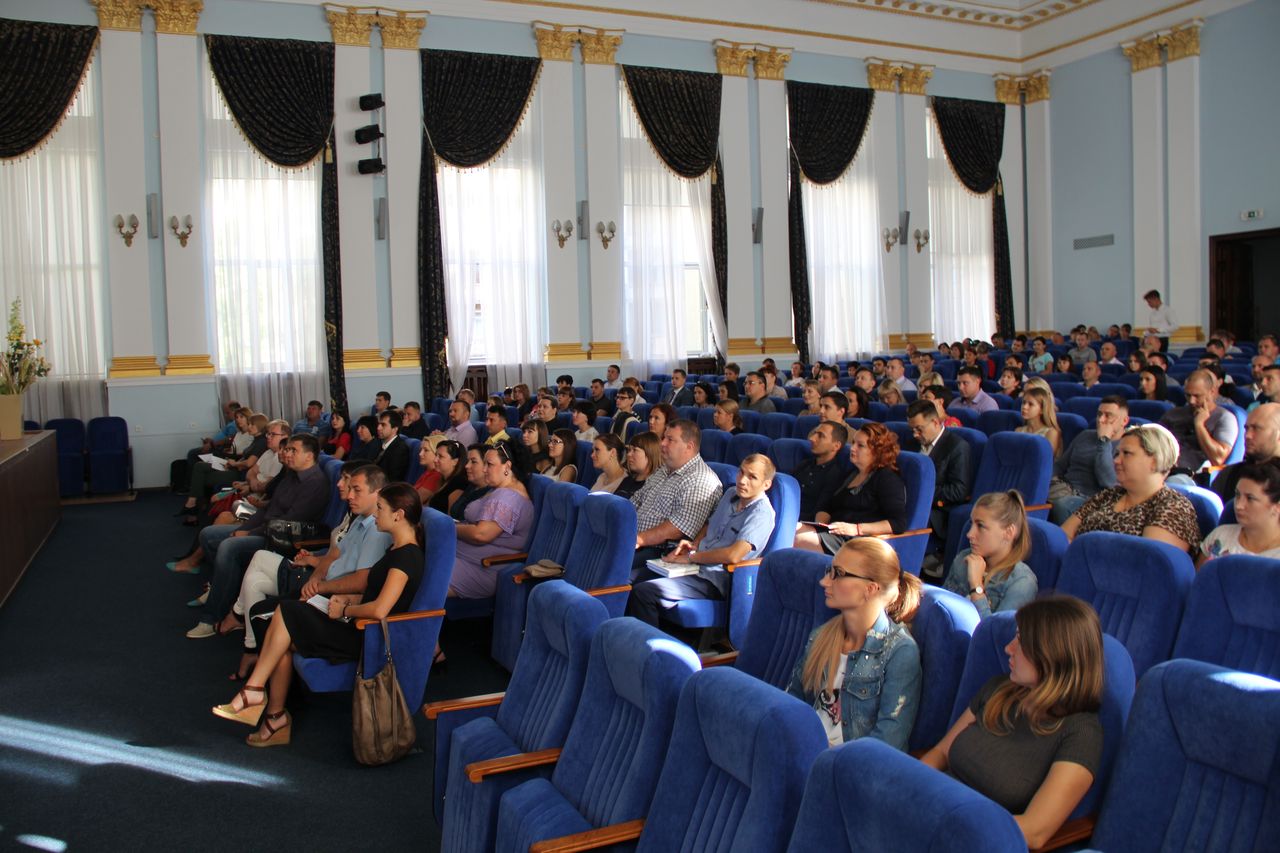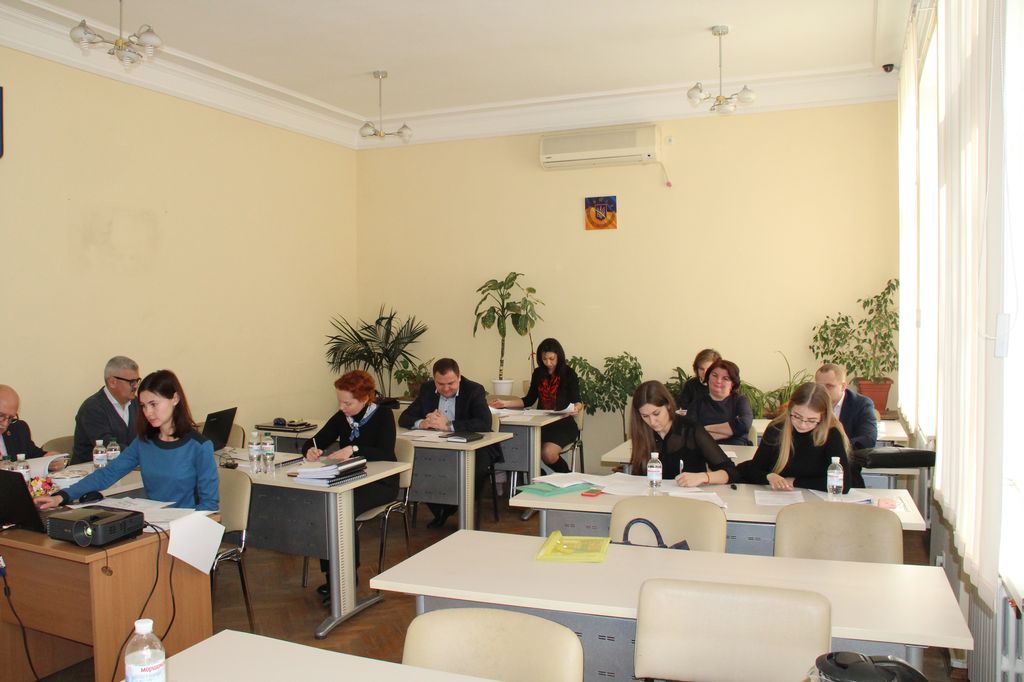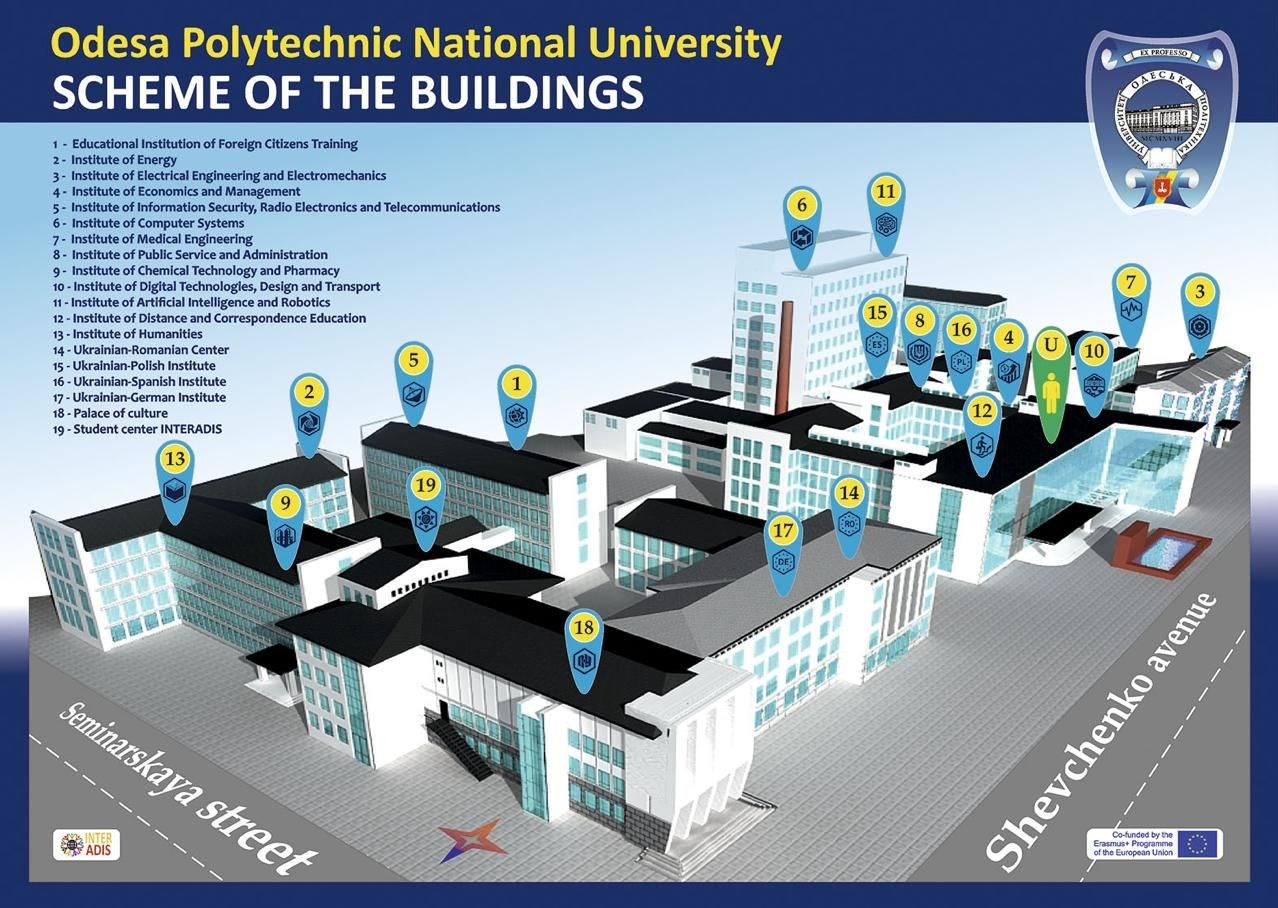Odesа Polytechnic National University (OP)
Full Official Name: Odesa Polytechnic National University
Abbreviated Name: Odesa Polytechnic | OP
Location: 1 Shevchenko Avenue, Odesa, Ukraine
Ownership: State
Affiliation: Ministry of Education and Science of Ukraine
Foundation Year: 1918
Historical Significance and Academic Legacy:
Founded in 1918, Odesa Polytechnic is recognized as the oldest institution of technical higher education in Southern Ukraine. Since its inception, it has played a pivotal role in shaping the region’s scientific and industrial development, serving as a foundational pillar in Ukraine’s system of engineering education.
The university is particularly notable for its academic prestige, having been home to numerous eminent scholars, including Igor Yevgenyevich Tamm, who was awarded the Nobel Prize in Physics in 1958 for his groundbreaking work on the Cherenkov effect in nuclear media. In total, over 20 members of the university community have been recognized as State Prize Laureates of Ukraine in Science and Technology, reinforcing Odesa Polytechnic’s reputation as a center of scientific excellence, innovation, and national intellectual leadership.
Spin-off Higher Education Institutions:
Over the decades, Odesa Polytechnic has played a pivotal role not only in advancing technical education but also in shaping the broader academic landscape of Ukraine. Several prominent institutions in Odesa emerged as spin-offs from Odesa Polytechnic’s multidisciplinary framework, growing into autonomous universities that today specialize in fields such as maritime transport, telecommunications, economics, civil engineering, and agriculture. Each of these institutions originated from academic divisions once housed within Odesa Polytechnic and continues to reflect its tradition of excellence, innovation, and service to society.
🔹 Odesa National Maritime University
Established in 1930, this university evolved from Odesa Polytechnic’s early training programs in maritime engineering and transport logistics. It is now a leading institution in Ukraine for maritime education, international shipping, and port infrastructure studies.
🔹 State University of Intelligent Technologies and Telecommunications, Odesa
Originally founded in 1920 as a telecommunications department within Odesa Polytechnic, it became an independent entity in the 1930s. Today, it operates as the State University of Intellectual Technologies and Communications, focusing on ICT, digital systems, and cybersecurity.
🔹 Odesa National Economic University
This institution traces its roots to the economics and industrial management departments formerly part of Odesa Polytechnic. It now offers a broad portfolio of programs in finance, international trade, and public administration, serving students across Ukraine and abroad.
🔹 Odesa State Academy of Civil Engineering and Architecture
Initially part of Odesa Polytechnic’s civil engineering faculty, this academy was established as a separate institution to meet regional demand for urban planning and infrastructure development. It specializes in architecture, construction technology, and sustainable design.
🔹 Odesa State Agrarian University
Evolving from agrarian and rural engineering programs historically linked to Odesa Polytechnic, this university became an independent center for agricultural education. It now offers degrees in agronomy, veterinary science, and environmental management, and supports innovation in Ukraine’s agri-food sector.
Structural Overview:
Main Divisions: 16 educational-scientific institutes, 64 chairs
Separate Units: 3 colleges, 1 higher vocational school
Educational Programs:
Bachelor’s Level: 36 specialties, 76 educational programs
Master’s Level: 29 specialties, 62 educational programs
Doctoral Studies: 22 specialties (Doctor of Philosophy),
15 specialties (Doctor of Sciences)
Institutes and Chairs as the Academic Core
Odesa Polytechnic is organized into 15 educational and scientific institutes and faculties, comprising a total of 64 academic departments (chairs). These structural units form the backbone of the university’s academic and research ecosystem, covering a wide range of disciplines—from engineering, information technology, and natural sciences to economics, management, and the humanities. Each department integrates teaching with applied and fundamental research, ensuring both academic rigor and alignment with national innovation priorities. This architecture supports a vertically integrated education model in which academic instruction is closely tied to scientific development and real-world application.
Colleges and Vocational Education: A Practical Entry Point
In addition to its core academic faculties, Odesa Polytechnic operates three colleges and one higher vocational school, which function as autonomous academic units with a strong focus on short-cycle, professionally oriented education. These institutions offer programs at the professional junior bachelor level, serving as a foundational stage for technical education and providing direct pathways into undergraduate study. Their mission is to deliver practical, industry-relevant training, aligned with regional labor market demands, while also supporting lifelong learning and academic mobility. As such, they serve as critical entry points into the university’s broader academic system.
Comprehensive Degree Programs from Undergraduate to Doctorate
The university offers a robust multi-level education system that includes 76 bachelor’s programs across 36 specialties, 62 master’s programs in 29 specialties, and advanced research training through 22 PhD (Doctor of Philosophy) programs and 15 Doctor of Sciences programs. This structure allows students to pursue continuous academic growth, from foundational education to advanced scientific inquiry. Odesa Polytechnic thus plays a vital role in preparing highly qualified professionals and researchers for Ukraine’s knowledge economy, contributing to the national strategy for technological advancement, scientific excellence, and global academic competitiveness.
Global Academic Initiatives:
Training and Internships Abroad: Collaborative programs with institutions in Austria, Bulgaria, Spain, China, Germany, Poland, Portugal, Czech Republic, Sweden
Foreign Student Training: Available in all specialties
Preparatory Institute: Foreign Students Training Institute for preparatory courses
Postgraduate Education: retraining; professional skills upgrade
Professional Development: Offers retraining and skills upgrades.
Campus Facilities:
Educational Buildings Location: In the city center, all gathered within one bloc
Dormitories Location: Resort part of the city.
Infrastructure:
Scientific & technical library with over 1.2 million titles, e-library Students leisure & culture Palace with 1000 seats.
Sports complex featuring 7 specialized gyms, a swimming pool, a shooting gallery, tennis courts, sports yards and a sports stadium.
Environmentally-friendly sports and recreation campus at Carolino-Bugaz.
On-site students polyclinic and sanatorium-preventorium.
International Affiliations:
European Universities Association (EUA): As a member, Odesa Polytechnic actively engages in shaping policies and practices across Europe’s higher education landscape, participating in discussions and exchanging best practices with other institutions.
International Association of Universities (IAU): This global association facilitates international academic cooperation, allowing Odesa Polytechnic to engage in a dynamic network for dialogue and collaboration with higher education institutions worldwide.
Eurasian Universities Union (EURAS): Membership enhances connections with universities across the Eurasian region, promoting cultural and academic exchanges that enrich educational and research initiatives.
European Nuclear Education Network (ENEN): Odesa Polytechnic’s involvement demonstrates its commitment to maintaining and advancing expertise in nuclear education, participating in training activities that uphold high educational standards in the nuclear field.
Nuclear Reactors II and III Generations Association (NUGENIA): Participation in NUGENIA places Odesa Polytechnic at the forefront of research and development in nuclear reactor technology, focusing on enhancing the safety and efficiency of current and future nuclear systems.
Regional Network for Education and Training in Nuclear Technology (STAR-NET): The university’s participation facilitates regional collaboration in nuclear education and training, aligning with strategic goals to lead in specialized nuclear training across Central and Eastern Europe and Central Asia.
UNESCO Chair: Hosting a UNESCO Chair positions Odesa Polytechnic within a global network of higher education institutions dedicated to furthering the educational, scientific, and cultural objectives of the United Nations Educational, Scientific and Cultural Organization.
Official Contacts – Odesa Polytechnic
Official Website: https://op.edu.ua
Address: 1 Shevchenko Avenue, Odesa, 65044, Ukraine
Legal Representative
Name: Viacheslav Shobik
Position: Vice-Rector for International Cooperation
Phone: +380 48 705 8460 | +380 67 764 9527
Email: shobik@op.edu.ua
Contact Person
Name: Oleh Shablii
Position: Head of Department, Department of Foreign Relations
Phone: +380 48 705 8439 | +380 67 484 4288
Email: vmz@op.edu.ua

 English
English
 Українська
Українська 
